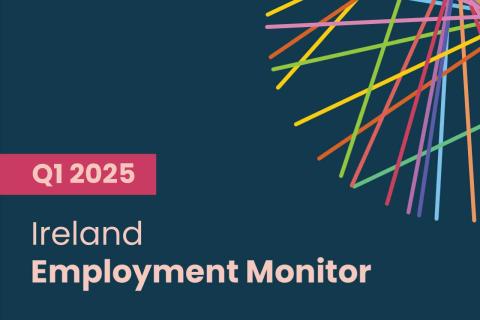A supply chain CV template that really sells your expertise

When we speak to candidates about creating a supply chain CV, they are often unsure as to where the fine line exists between too much and too little information about their previous roles.
Download Supply Chain CV Template
Whilst there is always room to change your CV to tailor it for every role you want to apply for, there is a generic format you can use to achieve this which I have outlined here and I've also attached a sample supply chain CV.
The format
Personal profile
If you include this in your CV, make sure it’s snappy, to the point and interesting; make sure it’s relevant to the role you are applying for. Pick your key skills and strengths. Ask yourself if you were a hiring manager, what would you like to see on a CV?
I advise three to five lines summarising:
- your educational background and career to date
- the type of person you are
- what type of position you are looking to get
- the type of company you wish to join and why
Keep the employment dates concise, use the month and year to make it clear how long you spent with each role. This eliminates any questions and gives clear accountability; if there are gaps you should know exactly for how long and why.
Education
With education and qualifications becoming more of a focus in supply chain be sure to include any courses you are undertaking or about to undertake on the CV. If you have a third level qualification make sure you include the institution and the dates and don’t forget to include any further training completed – supply chain professionals would usually have additional qualifications.
List the name of the course, the awarding body (e.g. secondary school, University or Institute of Technology) and the dates started and completed in chronological order.
Unless you are a graduate or a candidate with less than two to three years' experience there is no need to list the subjects you did in these courses – the overall grade will suffice. You can also include professional qualifications under this heading if there are only one or two e.g. IIPMM, IPICS, APICS (IPICS), CILT and CPM or PM courses.
Work experience
Titles, while very important, differ hugely from company to company so a detailed bullet pointed list outlining duties is the key to the potential employer understanding what your current or past duties are.
List each role in chronological order and include the following for each:
- Start and end dates
- Name and address of each company
- One to two lines describing the company
- Your job title
- The remit of role (global etc.)
- Your responsibilities and achievements
Dates: Keep the employment dates concise, use the month and year to make it clear how long you spent with each role. This eliminates any questions and gives clear accountability; if there are gaps you should know exactly for how long and why.
What'll really work well for your CV and make you stand out is to make sure you use figures around:
- savings
- process efficiencies
- size of team
Common mistakes we see in supply chain CVs include the responsibilities listed being too long winded, the CV being too long and descriptions of roles stretching too far back and not relevant to supply chain careers. If you've 20 years' of experience but half of it is irrelevant to supply chain, only include those roles which are.
Key achievements
Always make sure to highlight key achievements at the end of your duties with each employer to include any cost savings, process improvements, price negotiations, new ideas introduced.
In procurement these would be around savings, in supply chain could be in relation to implementations, innovation or transformations, production could be related to lean and output. Buyers are always asked what savings did they make when purchasing materials and what negotiation skills they have, this is important. Planners are always asked if they improved the lead time and if they reduced the inventory levels.
Try and list as many achievements as you can – make your CV stand out from people working the exact same role as you in different companies.
Skills
Under this heading, you should include sub-categories such as languages and computer packages – within these, list what ones you have used, and your proficiency in each.
For example, SAP, Oracle, MS Excel etc. Only ever include the packages you are confident using and are up to date. Many ERP systems work using the same methods however certain employers sometimes have a preference for a particular experience.
Hobbies & interests
This is a good talking point at interview, the hiring manager could share similar interests with you. List any sports or instruments played, what you enjoy doing in your spare time. Also list any non-academic or work related achievements here e.g. fundraising activities.
Remember!
- While it’s good to sell your experience in the most positive way possible, steer clear from exaggerating any skills or experience you have gained or this might come back to haunt you!
- This is the document that future employers will be looking at and accordingly making the decision whether or not they should meet with you – with this in mind make sure there are no grammatical or spelling errors and that it is laid out in as attractive a format as you can.
- Your CV is going to form the basis of any questions that are asked of you during an interview – if you write about it, make sure you can speak about it!














